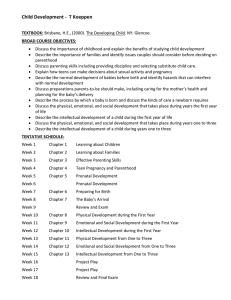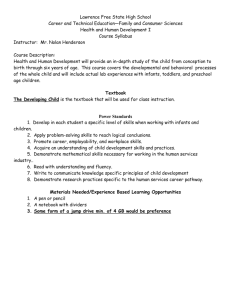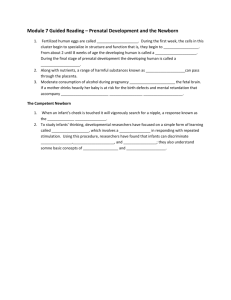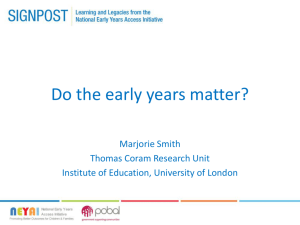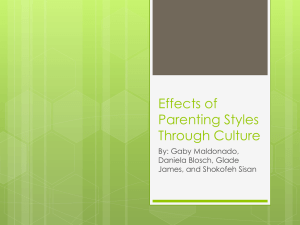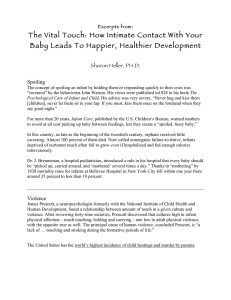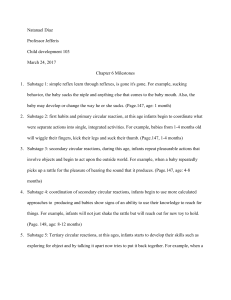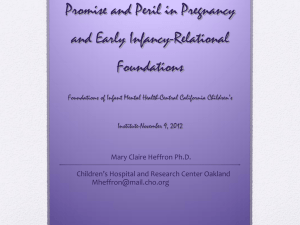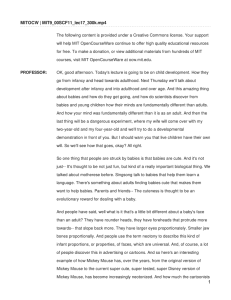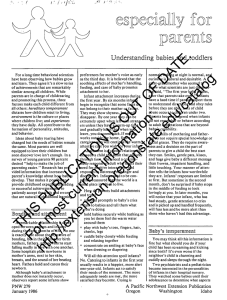Child Development Final Study Guide
advertisement
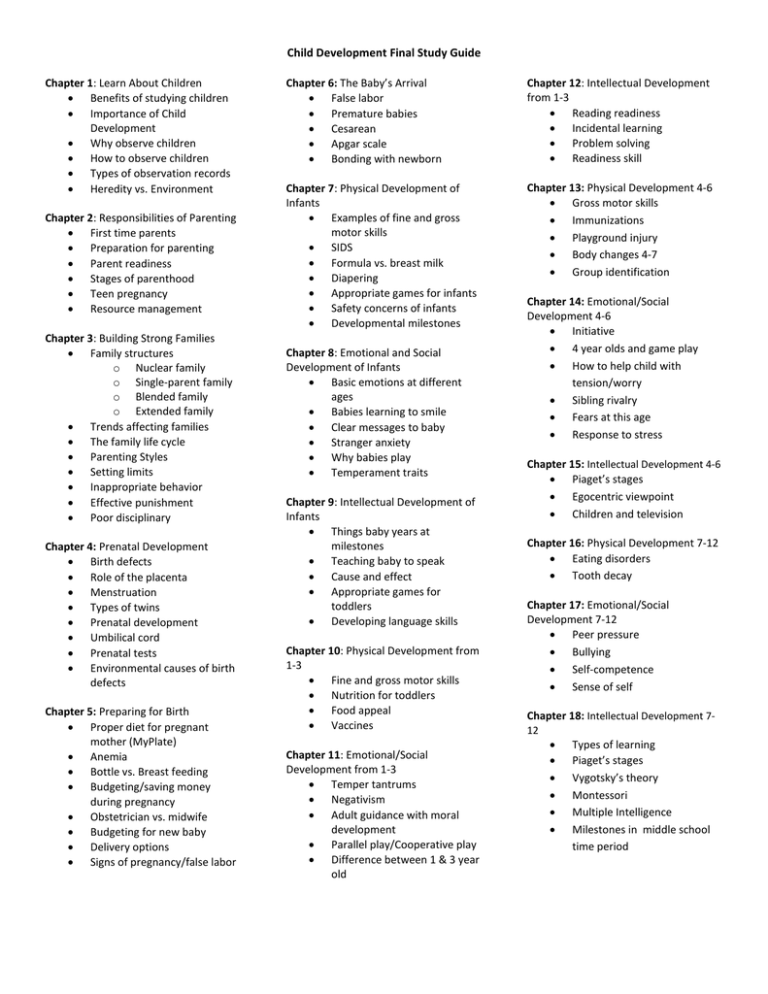
Child Development Final Study Guide Chapter 1: Learn About Children Benefits of studying children Importance of Child Development Why observe children How to observe children Types of observation records Heredity vs. Environment Chapter 2: Responsibilities of Parenting First time parents Preparation for parenting Parent readiness Stages of parenthood Teen pregnancy Resource management Chapter 3: Building Strong Families Family structures o Nuclear family o Single-parent family o Blended family o Extended family Trends affecting families The family life cycle Parenting Styles Setting limits Inappropriate behavior Effective punishment Poor disciplinary Chapter 4: Prenatal Development Birth defects Role of the placenta Menstruation Types of twins Prenatal development Umbilical cord Prenatal tests Environmental causes of birth defects Chapter 5: Preparing for Birth Proper diet for pregnant mother (MyPlate) Anemia Bottle vs. Breast feeding Budgeting/saving money during pregnancy Obstetrician vs. midwife Budgeting for new baby Delivery options Signs of pregnancy/false labor Chapter 6: The Baby’s Arrival False labor Premature babies Cesarean Apgar scale Bonding with newborn Chapter 12: Intellectual Development from 1-3 Reading readiness Incidental learning Problem solving Readiness skill Chapter 7: Physical Development of Infants Examples of fine and gross motor skills SIDS Formula vs. breast milk Diapering Appropriate games for infants Safety concerns of infants Developmental milestones Chapter 13: Physical Development 4-6 Gross motor skills Immunizations Playground injury Body changes 4-7 Group identification Chapter 8: Emotional and Social Development of Infants Basic emotions at different ages Babies learning to smile Clear messages to baby Stranger anxiety Why babies play Temperament traits Chapter 9: Intellectual Development of Infants Things baby years at milestones Teaching baby to speak Cause and effect Appropriate games for toddlers Developing language skills Chapter 10: Physical Development from 1-3 Fine and gross motor skills Nutrition for toddlers Food appeal Vaccines Chapter 11: Emotional/Social Development from 1-3 Temper tantrums Negativism Adult guidance with moral development Parallel play/Cooperative play Difference between 1 & 3 year old Chapter 14: Emotional/Social Development 4-6 Initiative 4 year olds and game play How to help child with tension/worry Sibling rivalry Fears at this age Response to stress Chapter 15: Intellectual Development 4-6 Piaget’s stages Egocentric viewpoint Children and television Chapter 16: Physical Development 7-12 Eating disorders Tooth decay Chapter 17: Emotional/Social Development 7-12 Peer pressure Bullying Self-competence Sense of self Chapter 18: Intellectual Development 712 Types of learning Piaget’s stages Vygotsky’s theory Montessori Multiple Intelligence Milestones in middle school time period
